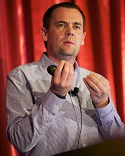Who to Contact
In matters relating to your journal, you may need to contact several people at Sage.
To route your questions, comments, suggestions, or needs to the appropriate person, please use this guide.
You are in: Antarctica
Change location
In matters relating to your journal, you may need to contact several people at Sage.
To route your questions, comments, suggestions, or needs to the appropriate person, please use this guide.
Authors are encouraged to use this template to respond to peer review comments and detail the changes made to their manuscript. Authors should read the instructions carefully and include the completed form with their revised submission.
We are looking for a proposal which covers the following key areas:
London – SAGE one of the world’s leading independent academic and professional publishers today reported more than 11 journals ranked in the two top tiers, 4* and 4, in The Association of Business Schools’ (ABS) Academic Journal Guide 2015.

In this webinar, Ralph E. Hanson discusses the challenges of teaching mass communication and five tips for engaging your students along the way.

These guidelines should be followed by authors of Contributions published in a Sage subscription journal, including authors whose Contributions were published under a previous version of the author guidelines. For a list of exceptions to these guidelines, please see below.
Three versions of the Contribution are referenced in these guidelines:
These guidelines should be followed by authors of Contributions published in a Sage subscription journal, including authors whose Contributions were published under a previous version of the author guidelines. For a list of exceptions to these guidelines, please see below.
Three versions of the Contribution are referenced in these guidelines:
The tools you need to promote Lean Library to your patrons.
At Sage we are committed to facilitating openness, transparency and reproducibility of research. We support and encourage research data to be shared, discoverable, citable, and recognized as an intellectual product of value.
In recent years, there have been calls to make scholarly articles more accessible to non-specialist audiences. Research has always helped shape the public realm, empowering people across all sectors of society to make informed decisions. Academic or topic-specific jargon can hinder the general understanding and impact of such publications, which is where Plain Language Summaries (PLS) can be very helpful.
What are Plain Language Summaries (PLS)?
Choose open access publishing for increased impact and global visibility
|